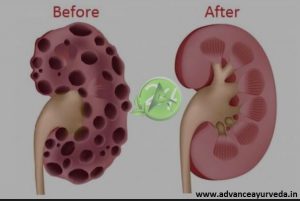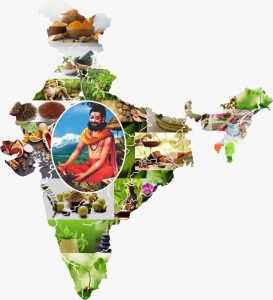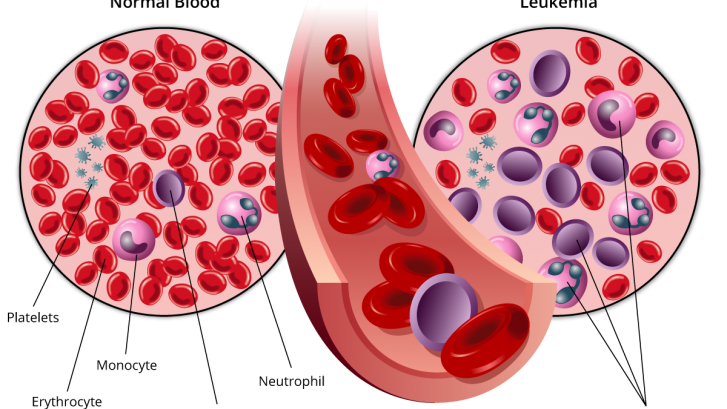Facts for Ayurvedic Treatment for Kidney Failure
Renal failure is resultant of many other disorders in the body and to cure this disease first of all the history of the patient is important.
History
History of the patient reveals about the state of the patient and state of the disease in the body, it includes family history, medical and personal history. With this information, the physician is able to make a proper diagnosis of the disease.
Family
Family history of any disease Diabetes, Hypertension, Coronary artery disease reveals the occurrence of the diseases and symptoms in the patients from family. These disorders can be categorized as Genetic or Hereditary disorders. These diseases get passed from generation to generation, so giving your doctor your family history is important.
Personal History
If a patient is taking tobacco, smoking, drugs, alcohol, any kind of addiction. Whether taking these things currently or for a long time. It reflects the physical as well as a psychological condition of the patient.
Past History
If the Patient is consuming any kind of medication for any diseases or if any surgery is done in the past, any type of medication in continuation, 5-6 months back or long is important. Your physician should not miss the same, viz. Continuous use of Pain killers can also lead to kidney failure.
Present Complaints
When a patient goes to a physician, discussing current symptoms along with the history is important. Whether the patient feels any kind of uneasiness in body, difficulty in any body part, indigestion, breathlessness, unable to walk or unable to speak, etc. Even the minor complaints are important to assess the disease and plan treatment. These complaints may help the physician to reach a perfect diagnosis. Don’t ignore any simple complaint as an occasional headache even. Please do communicate with your doctor.
Chief Complaints
What chief complaint the patient is complaining about we need to know. A few symptoms like continuous and persisting pain in the abdomen, frequent micturition for one week, numbness in lower limbs, etc. should not be missed.
Making an Ayurveda Diagnosis is Important
From the Ayurvedic point of view what is the diagnosis of the disease, knowing about it is equally important as the treatment of the disease.
Physical examination of the Patient
Physical examination is a very important factor to reach the diagnosis of a disease. It includes the following :
- Inspection of the patient.
- Palpation and Interrogation to the patient.
- Pedal edema
- Tongue examination
- Pulse examination (for OPD patients only)
Investigations – Medical Investigations are important to make a proper diagnosis. Laboratory investigations as well as another diagnostic tests like USG, CT, MRI, etc. In Kidney failure Urea, Creatinine, Uric acid, Sodium, Potassium levels are de-arranged. You may find the only proteinuria in the initial stages of the disease.
For Ayurvedic treatment for kidney failure, we would require the following details:
For patients who are not on dialysis, we require the following information-
- Blood Urea, Creatinine
- Lipid Profile, CBC, Thyroid Profile, Liver function Test
- For Diabetic Patients we require-
- All blood reports stated above along with
- HbA1c levels, Serum Insulin, Urine routine examination
- For dialysis patients we require –
- Before dialysis weight
- After dialysis weight
This will help to assess weight gain between the two consecutive dialysis sessions. We might be able to reduce the frequency of dialysis in the near future. Weight gained means the amount of water collected in our belly as kidney is not able to make enough amount of urine. With ayurvedic medicine for kidney, failure kidneys will start filtering blood and urine output will increase & the patient will observe negligible weight gain before dialysis.
Before dialysis Urea & Creatinine– This is a remarkable test without which kidney function can’t be determined. Pre dialysis Urea & Creatinine will decrease with our Ayurvedic Treatment for Kidney Failure.
Urine Output in 24 hours tells about the current scenario of the patient’s kidneys whether the kidney is able to perform its function of filtration.
Recent Ultrasound- It will clearly depict the kidney size if any shrinkage is there. It will help to analyze patient conditions much better and how much time needed to recover. Patients with kidney size 10 cm will recover early than a patient with a kidney size of 7 cm. Kidneys do shrink when they don’t work that’s the universal law.
For all patients, we also require the tongue’s image to assess the dosha imbalance and, Accordingly, we advise Ayurvedic Medicine. This is an important feature where we use technology which helps a doctor to prescribe right medicines.
Causes of the Kidney Disease According to Ayurveda
Excessive Exercise, Bitter drugs, Dry nature food, Excessive alcohol, too much traveling, excess Meat intake, Indigestion, etc.
Pathogenesis of Kidney disease
Due to the above causes ‘Doshas’ becomes imbalanced. These Doshas in their vitiated state separately or collectively reaches to the Kidneys (called as Sathan sansharaya -doshas collecting in particular area) and start producing the symptoms in patient as Pain in the lower abdomen, Less micturition, Swelling in the body and thus causing the disease.
Symptoms in Kidney failure
A common symptom is less and sometimes painful micturition.
This is caused by all three Doshas (Tridoshaj Vikar)
If any Dosha is more vitiated then the patient will experience following symptoms accordingly:
- In Vataj disease – There is Pain in lower Abdomen, Frequent and Less micturition.
- In Pittaj disease – Burning lower abdomen, Frequent micturition, Red and Yellow colored urine
- In Kaphaj disease -Heaviness in the lower abdomen, Inflammation, Whitish and Greasy/oily urine(ketosis)
AYURVEDIC TREATMENT FOR KIDNEY FAILURE- Mode of treatment
- Removing the cause is the main motive
- Panchakarma treatments- Massage, Oleation Therapy, Hot Fomentation, Medicated Enemas according to Dosha imbalance.
For patients who can stay at our place, we plan Panchakarma treatment which helps in reducing Creatinine & cleansing of intestines.
- Ayurvedic Drugs for Kidney failure
- KIDNEY CARE KADHA (herbal decoction), PUNNARNAV PLUS (Punnarva), NEPHRO-ACTIVE PLUS (Tribulus)
- Diuretics
- PUNNARNAV PLUS(Punnarva), NEPHRO-ACTIVE PLUS(TRIBULUS)
K Stone Capsules
Important Things to Be Included In Diet
- Grains- Type of rice according to season such as Red rice, Brown rice, Old rice
- Pulses-Split green gram soup (Moong)
- Fruits-Watermelon, Dates, Coconut, Emblica( Amla)
- Vegetables- Sweet gourd (Petha), Cucumber, Amaranthus (Chaulai)
- Fats- Clarified butter (ghee), Certain meats,
- Drinks- Buttermilk, Cowmilk
- Sweets- Jaggery powder
Avoid
Food- Dry nature food which produces dryness effect in the body e.g. barley, food in improper combination such as fish and milk taking together
- Pulses-Split red gram (Urad)
- Fruits- All citrus fruits, Pan (betel quid)
- Fats-Fish, no butter/cream
- Drinks-Alcohol
- Activities- working more, sex, travelling more
Note: We at <strongDr. Aggarwal’s Ayurvedic Panchakarma & Research Centre take detail history of patient accordingly plan individual treatment also provides Ayurvedic Treatment for kidney failure, ayurvedic treatment for cancer, ayurvedic treatment for diabetes, ayurvedic treatment for stress without any side effects.
Home Remedy for Increasing Urination
- Ferula assa-foetida( Hing) application on the Lower abdomen, Massage with Narayan oil after this.
- Massage in Lower Abdomen with different Medicated Oils like Mahanarayan oil, Saindhavadi oil, Mahamarichadi oil will help in urination.
For More details you can share medical reports with us, Doctor consultations are Free.



